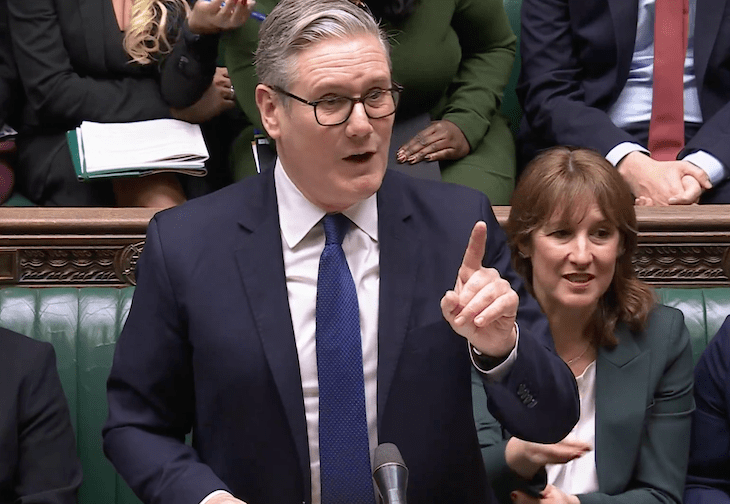Another week, another peace plan for a seemingly intractable conflict. This time it’s Gaza’s turn, with the launch of a new peace and reconstruction plan for the rubble-strewn Strip. The proposal, created by Egypt and endorsed by the Arab League (a 22-strong group of Arab states) at a summit in Cairo, provides an alternative to President Trump’s ‘Gaza Riviera’ model.
Trump’s idea to place Gaza under US control, depopulate it to redevelop the enclave, and decant its residents to nearby Egypt and Jordan was rejected out of hand by the Arab states. The US has signalled that it is open to hearing what an Arab plan for Gaza’s post-war reconstruction would be. So, is this new scheme any better?
Lacking Israeli and US support, more work on this plan this looks like a fool’s errand
In some ways, the new proposal is a worthy effort that seeks to grapple with the practicalities of rebuilding what has been described as an ‘apocalyptic landscape’, ravaged by fifteen months of intense fighting. Late last year, satellite imagery showed that 60,000 structures across Gaza had been destroyed and more than 20,000 severely damaged, with 90 per cent of the population displaced.
Under the Arab plan, a six-month interim period would focus on clearing the rubble from Salah al-Din street – the main north-south highway in Gaza. With the roads clear, 200,000 temporary homes could then be built to house 1.2 million people, around 60,000 damaged buildings would be redeveloped and a further 400,000 homes built over the following 30 months – allowing Gazan residents to stay in the strip during reconstruction.
Over a five-year period, basic utilities like water, waste, telecoms and electricity would all be gradually restored, along with the rebuilding of Gaza’s seaports and its international airport. Security would be handled by a new Palestinian police force, with officers trained by Egypt and Jordan, together with an international peacekeeping mission authorised by the United Nations Security Council, who would oversee governance in Gaza until reconstruction has been completed.
So far, the scheme seems difficult but potentially doable. The total cost of $53 billion (£41 billion) could be shouldered by international donors and several of the wealthy Gulf States, many of whom have already indicated they would be willing to send peacekeeping troops to the Strip to maintain order and prevent a return to terrorism. That the plan has somehow gained favour from such a disparate group as the Arab League is also no mean feat, given the organisation is so broad it features moderate Gulf monarchies such as Oman alongside hardline military dictatorships like Egypt.
The strategy might have had even broader support had it provided acceptable answers to the questions of who would be in charge of Gaza and whether the United Nations Relief and Works Agency for Palestine Refugees (UNRWA) would be involved. It is here that it managed to lose the United States and Israel – both of whom are needed to sign off on any viable plan.
The proposal calls for a group of ‘independent Palestinian technocrats’ to manage affairs in Gaza. They would effectively replace Hamas, overseeing humanitarian aid and the first phase of reconstruction while paving the way for the Palestinian Authority (PA), headed by its President Mahmoud Abbas, to take over in the Strip. The PA is the Fatah-controlled government body that currently oversees the West Bank territories.
While Abbas has promised elections within a year of taking over, this will simply not fly with Israel. The PA is reportedly widely hated amongst Palestinians, has been accused of rampant corruption, failed to condemn the 7 October 7 and until recently operated a ‘pay-for-slay’ policy of financially compensating Palestinians injured, killed or imprisoned while inflicting violence on Israelis, effectively subsidising terrorism.
Then there is the counterproductive backing for UNRWA from the Arab League, who affirmed ‘the vital and irreplaceable role’ it plays in ‘carrying out its mandate granted by the United Nations resolution’. Egypt’s Foreign Minister Badr Abdelatty rejected any suggestion that UNRWA or the PA shouldn’t have a role in Gaza in the future as ‘nonsense’, claiming they represented ‘international legitimacy’.
UNRWA schools and teachers in the West Bank and Gaza have been condemned in multiple reports for running education and social services that regularly call for the murder of Jews, and create teaching materials which justify terrorism, encourage martyrdom, demonise Israelis and incite anti-Semitism. Israel has banned them from operating on its territory. UNRWA has strongly denied these allegations, saying it takes them seriously and would investigate.
Given their track record, Israeli Prime Minister Benjamin Netanyahu’s government has already ruled out any future deal that involves the PA or UNRWA in Gaza’s affairs. If the aim was to garner the most wide-ranging support for the new plan, this was a strange hill for Egypt to choose to die on.
Unsurprisingly, Israel has rejected the scheme on these grounds, while the United States added that it is still unconvinced that the Palestinians can stay in the Strip while it’s redeveloped. US National Security Council spokesman Brian Hughes claimed that Gazan residents ‘cannot humanely live in a territory covered in debris and unexploded ordnance’.
Egypt and its Arab League allies are due to seek the support of other predominantly Islamic countries for their plan at another summit in Saudi Arabia next week. Lacking Israeli and US support, this looks like a fool’s errand. Until a plan can be devised that brings all the key players onside, if this is even possible, it’s a case of back to the drawing board.







Comments